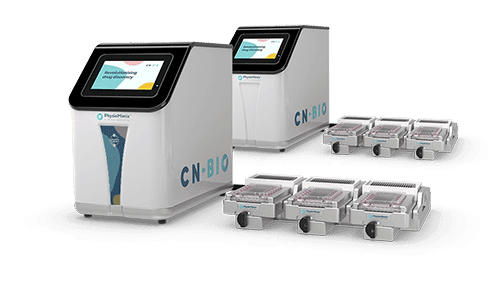London, UK, April 5 2017: CN Bio Innovations Limited announces that it has licensed from Bristol-Myers Squibb Company a Hepatitis B drug discovery programme comprising several series of small molecule antiviral compounds.
The exclusive agreement enables CN Bio to undertake discovery, development and commercialisation of the antiviral compounds to create a combination treatment for chronic Hepatitis B infection and a monotherapy treatment for Hepatitis D infection.
Hepatitis B kills over half a million people annually and is the most common serious liver infection in the world, causing up to 80 per cent of liver cancers. Hepatitis D is a highly aggressive form of hepatitis viral infection affecting more than 15 million people worldwide. There is no cure for Hepatitis D and current treatments are simply palliative.
The small molecule compounds, identified by a Bristol-Myers Squibb screening programme prior to exiting virology discovery, act to inhibit the production of Hepatitis B surface antigen (HBsAg). This antigen causes “immune exhaustion”, overwhelming the body’s ability to combat infection.
CN Bio will use its liver-on-a-chip model of Hepatitis B infection “Quantum-B®” as a bridge to the clinic. The platform employs human liver cells in a physiologically analogous environment allowing viral replication over several weeks. Candidate drugs – or combinations – can be tested for both safety and efficacy, rapidly generating highly relevant data for the compounds’ ultimate clinical usage.
Chief Executive of CN Bio, Dr Emma Sceats, said: “Our aim is to leverage the technology and expertise we have built at CN Bio over the last six years to fast-track the development of new therapeutic compounds into the clinic. We have already successfully used our Organ-on-Chip models to provide data and insights into drug discovery and drug safety programmes for both pharmaceutical and biotech companies. Our goal is to use our platforms to transform the speed and efficiency of the drug discovery process. The agreement is a significant opportunity as it will allow CN Bio to rapidly develop in-house antiviral therapies and further advance our Organ-on-a-Chip discovery paradigm.”
CN Bio also announced today that Imperial College professor and consultant in hepatology at St. Mary’s Hospital, London Professor Mark Thursz, will chair the company’s Scientific and Clinical Advisory Board.
Professor Thursz stated: “Current treatments for Hepatitis B are limited, and patients face serious chronic disease including liver cancer and cirrhosis. By providing more precise, human-relevant data, CN Bio’s Organ-on-Chip models have the potential to enable rapid progress of new treatments from concept to clinic.”
About CN Bio Innovations
CN Bio Innovations develops devices that boost the precision and speed of biological research. By predicting the effects chemical and biological substances will have on human organs, researchers can fast-track improvements in healthcare. In the past 4 years CN Bio has worked on more than 25 projects with pharmaceutical partners, using our Organs-on-Chips and related microfluidic devices to gather precise, human-relevant data.
CN Bio is backed by prestigious grant awards from sponsors including the US Department of Defence and Innovate UK. Spun out from the University of Oxford, the company is collaborating with and developing intellectual property from the Massachusetts Institute of Technology. Based in London, the company is backed by Hong Kong-based precision engineering conglomerate CN Innovations Holdings Limited.
More information about Cn Bio
About CN Bio liver-on-chip devices
CN Bio’s Quantum B liver-on-a-chip models recapitulate the structure and microenvironment of the human liver sinusoid and enables the co-culture of human hepatocytes with other cell types including Kupffer cells, NK and T-cells to enable modelling of innate and adaptive immune responses. The liver tissues remain functional and phenotypically stable for over forty days enabling studies of both acute and chronic responses.

